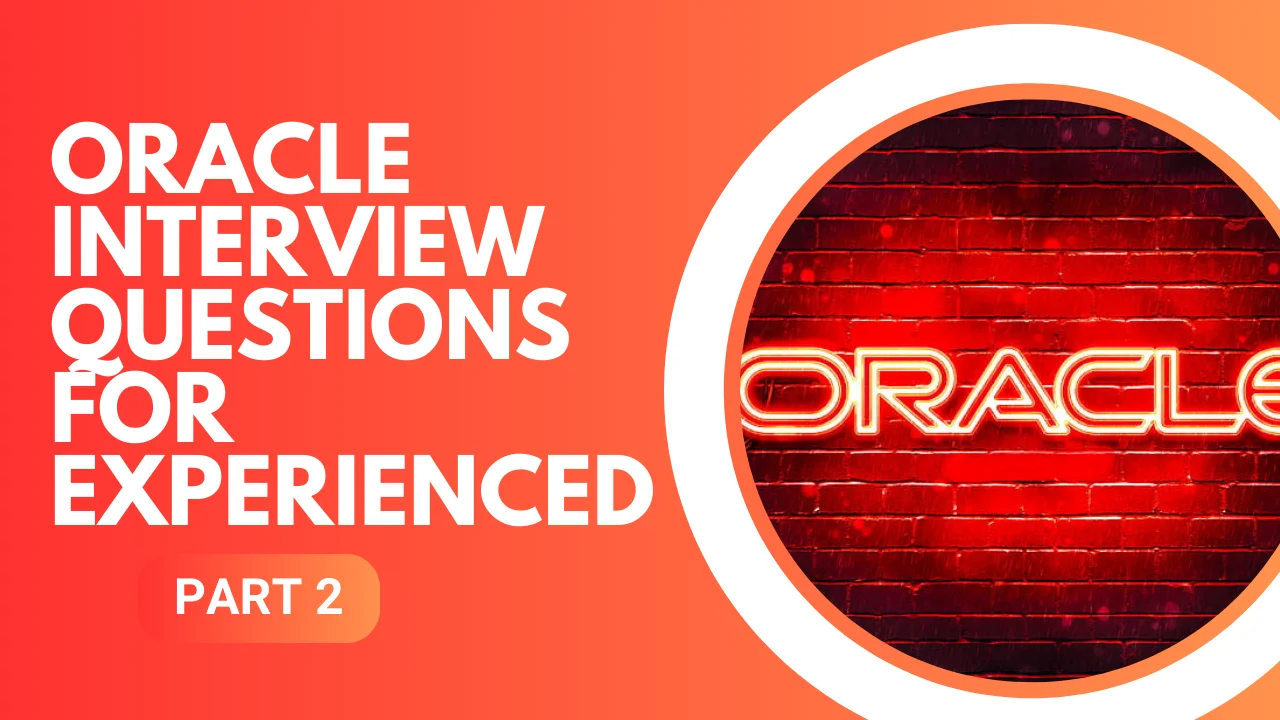Oracle Interview Questions for Experienced Part - 2

11. How does a post-database commit differ from a post-form commit in Oracle?
A post-database commit trigger fires after changes are committed to the database, while a post-form commit trigger fires after changes are committed within the current form session but before the changes are committed to the database.
12. What is a logical backup?
A logical backup involves exporting data from the Oracle database using utilities like Data Pump or Export, creating a logical representation of the database objects that can be imported back into the database.
13. What is redo log file mirroring in Oracle?
Redo log file mirroring in Oracle involves creating identical copies of redo log files to enhance fault tolerance and protect against loss of data due to a failure of the redo log file group.
14. What are recursive hints in Oracle?
Recursive hints in Oracle, like /*+ NOREWRITE */, prevent the optimizer from applying query rewrite transformations, ensuring that certain queries are not rewritten for optimization purposes.
15. State the limitations of the CHECK constraint.
CHECK constraints in Oracle have limitations such as not allowing subqueries or referring to other columns in the same table, limiting their complexity compared to other constraints.
16. How would you convert a date to a char in Oracle? Explain with an example.
To convert a date to a character in Oracle, you can use the TO_CHAR function. For instance:
SQL
SELECT TO_CHAR(sysdate, ‘DD-MON-YYYY HH:MI:SS’) FROM dual;
17. Can you differentiate between formal and actual parameters in programming contexts?
Formal parameters are placeholders in a function or procedure definition, while actual parameters are the values passed to those parameters when the function or procedure is called.
18. What extensions do Oracle reports use?
Oracle Reports commonly use the .rdf (Report Definition File) extension for report definition files and the .rep (Report Output) extension for generated report output files.
19. What steps would you take to convert a string into a date format within the Oracle database?
To convert a string to a date in Oracle, use the TO_DATE function, specifying the format of the input string. For example:
SQL
SELECT TO_DATE(‘2023-12-26’, ‘YYYY-MM-DD’) FROM dual;
20. How would you find the current time and date in Oracle?
You can retrieve the current date and time in Oracle using the SYSDATE function. For instance:
SQL
SELECT SYSDATE FROM dual;
21. What is the use of the following options in the IMP command: ROWS, GRANT, INDEXES, IGNORE, SHOW, FILE param?
- ROWS: Specifies the number of rows to import.
- GRANT: Imports object grants along with the data.
- INDEXES: Imports indexes along with the table data.
- IGNORE: Ignores creation errors during import.
- SHOW: Displays the SQL statements without actually performing the import.
- FILE param: Specifies the file from which import parameters are taken.
In conclusion,
second part of Oracle Interview Questions for Experienced delves deeper into the intricate aspects of Oracle databases. It explores fundamental concepts like snapshots, memory structures, database objects, and transaction management, shedding light on the nuanced functionalities within an Oracle environment. Additionally, it touches upon crucial elements such as control files, parameter distinctions, and data conversion techniques, providing a comprehensive view of the knowledge base expected from experienced Oracle professionals. Mastering these aspects not only showcases expertise but also demonstrates a robust understanding of Oracle’s complexities, vital for navigating real-world database challenges effectively.
Ready to take your Oracle skills to the next level? Explore our top-notch Oracle Training in Chennai. Our expert instructors and hands-on approach ensure that you not only ace interviews but also thrive in real-world scenarios. To kickstart your journey to Oracle excellence, contact us at +91 9655-333-334. Secure your future today with the best Oracle Training in Chennai. Don’t miss out on the chance to propel your career forward!





